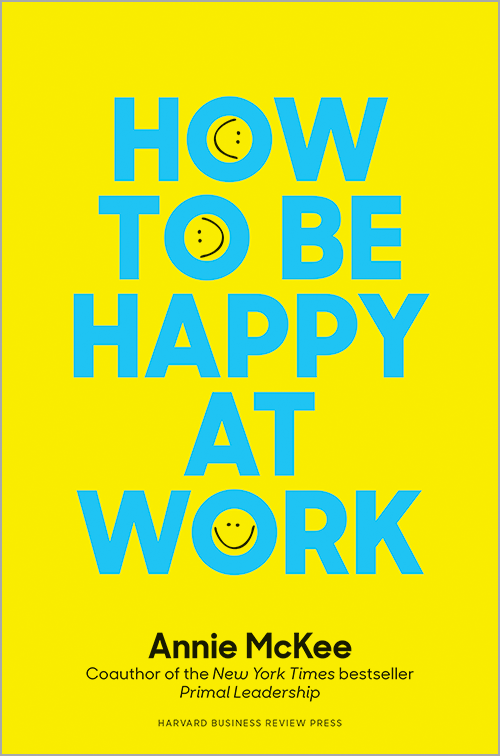How To Be Happy At Work


Annie McKee is an executive coach to senior leaders in Fortune 500 companies. She also leads the PennCLO doctoral program at University of Pennsylvania's School of Education. She co-authored Primal Leadership with the Daniel Goleman and Richard Boyatzis, the fathers of Emotional Intelligence movement, in 2002.
Since the Industrial Revolution in the mid-nineteenth century we have taught ourselves that who we are at work is different to who we are in our private lives. We behave differently in the formalized setting of large organizations to how we do in small groups, and with that has frequently come the implicit belief "that we are not supposed to be happy at work; that's for other parts of our life". McKee has seen that "when we are happy, we are more successful….when we feel deep, abiding joy in what we do, we learn more, see more and do more". Even if you are a psychopathic manager in an organization with no care for your staff's happiness and only focus on their productivity – having them learn more, see more and do more is going to be good news – and if that means making them happier then that should become something to aim for.
Like most management advice McKee's insight is not entirely new – but remains largely unpracticed. Her framework for organizational happiness is founded on core human psychology – the need to have purpose and hope and the need to have positive relationships with those around you.
Most organizations, especially those needing to report quarterly results, are trapped in cycles of 'producing the numbers' which creates an eternal circle of short-term fixes to achieve them. McKee notes that "what really kills us at work: [is that] efficiency still trumps effectiveness… practices that lead to short-term results and shareholder value take precedence over those that lead to sustainable success… we don't like being treated like machines. We like to be trusted to make decisions and do a good job". This is what lies at the heart of this book. The challenge is how that environment can be created.
McKee is savvy enough to know that individuals, other than those at the very top of organizations, can make little impact on organizational culture alone. Each of her key themes: purpose, hope, and friends at work comes with some review exercises to allow the reader to identify threads of positivity that they have at work, and weave them together to make working life more rewarding and happy for themselves.
As is clear from the title this is a self-help book for anyone trapped in the spiral of work depression – going through the motions of work in order to feed themselves, their family and keep the roof over their heads. The advice McKee gives is no doubt valuable and should be well-received by millions of people. But the larger message has to be to those who set corporate culture: that they need to create organizations where purpose, hope and friendships are championed, for not only will that create a happier workforce it will undoubtedly produce a more productive, innovative and profitable one too.
Title: How To Be Happy At Work
Author/s Name/s: Annie McKee
Publisher: Harvard Business Review Press
ISBN: 978-1-633-69225-1
Publishing Date: September 2017
Number of Pages: 208
Author Knowledge Rating: 1-5 (based on their years of experience, academic expertise in subject areas, and exposure to cross-functional thinking in the area)





































































Readability: 1-5 score(1=dense and v academic; 5=frantic; page turner)









































































Appropriate Length: (1=could have been written in 25% of the length;5=could have been longer)





























































Core Idea Value: (1=nonsense (or entirely esoteric); 5=game-changer)








































































